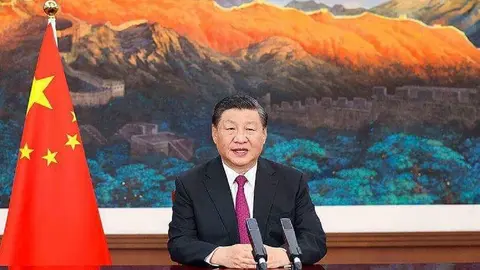Instability in Bangladesh and its implications for India

Amid this deteriorating situation in the country, Prime Minister Sheikh Hasina stepped down from her post and left the country. At the time of writing this article, Sheikh Hasina was in India. Whether she would stay in India by seeking asylum or go to any other country would be clear only in a few days.
While prima facie the upheaval in Bangladesh is its internal matter, the spill-over effects of these developments, particularly for India, cannot be overlooked.
Bangladesh is located to the east of India. The two countries share more than 4000 km-long border. Bangladesh is important for India from several perspectives.
First, Bangladesh came into existence only because of India. Earlier Bangladesh was known as East Pakistan when it was part of Pakistan. However following repression from the Pakistan army, people of East Pakistan started freedom struggle under the leadership of Sheikh Mujibur Rahman (Sheikh Hasina’s father). India intervened as the refugee inflow from Bangladesh became a challenge for India’s economy and security. In just 13 days, from December 4 to 16 in 1971, India liberated East Pakistan by carrying out military action against Pakistan and a new country Bangladesh came into existence.
Second, while Bangladesh became independent, the issue of Bangladeshi refugees in India has remained unresolved over the past more than 50 years. The influx of the Bangladeshis continued even after the country gained independence in 1971. This illegal migration has caused strain on India’s economic resources as well as created security concerns. These refugees have also been used as political instruments by different political parties. There have been several instances where political parties have been involved in issuing fake identity cards to these illegal migrants in order to get their votes in the elections. Specifically, states like West Bengal and Assam, that share border with Bangladesh, have experienced demographic changes in many of their districts due to the influx of illegal migrants from Bangladesh. As Bangladesh descends into chaos once again, there is a high possibility of influx of its people into India. For its part India has placed its Border Security Force on high alert.
Third, in a perpetually unstable neighbourhood, Bangladesh had been India’s close strategic partner in South Asia. Countries like Pakistan and Afghanistan are not only unstable but also present security concerns for India. Countries like Sri Lanka, the Maldives and Nepal are continuously tilting between India and China. Myanmar is also a cause of concern for India at present. However Bangladesh has proved to be a stable partner for India in South Asia. In particular, the India-Bangladesh relations have always witnessed an upswing during the Sheikh Hasina-led Awami League’s rule. But during the rule of other party, Bangladesh National Party, India’s ties with Bangladesh have deteriorated. Now since Sheikh Hasina is out of power and the military in control, it would be difficult to predict if India’s ties with Bangladesh remain stable under the rule of any other political dispensation in Bangladesh.
Apart from these general implications, there are three implications specific to India’s security.
First, a major security concern for India has been the insurgency in the Northeastern states. Many of these insurgent groups operated through their bases in Bangladesh. Initially Bangladesh had supported these groups. However, Sheikh Hasina reversed the policy of previous governments and started taking actions against these insurgent groups. Bangladesh’s cooperation was instrumental for India to a great extent to control insurgency in the Northeast. With Sheikh Hasina no longer the prime minister, India would need to be extra alert to prevent the restart of insurgency. India would also need to establish the security cooperation with the new political dispensation so that India’s northeast region does not become unstable.
Second, Sheikh Hasina’s government was opposed to Islamic extremism and took action against a number of radical organizations, especially against the members of an organization called Jamaat-e-Islami. Jamaat-e-Islami, having links to Pakistan, was banned by the Sheikh Hasina government and it was designated as a terror organization. Jamaat-e-Islami was also believed to have played an active part in the current protests in Bangladesh which resulted in Sheikh Hasina leaving Bangladesh. With uncertainty about the future government, there is a possibility of Islamic radicals gaining ground in Bangladesh and the spread of radicalization in the region. Islamic radicalization is not only a security problem for India but also for the Hindus in Bangladesh. The Hindu population in Bangladesh has been continuously declining for the last more than 50 years. Forced conversions and exodus of Hindus are two major causes of the reduction in the Hindu population in Bangladesh. After the fall of the Sheikh Hasina government, if the radicals get a free run, it will further endanger the Hindus in Bangladesh.
Third, Bangladesh is strategically important for India for connectivity. In 2018 India and Bangladesh signed an agreement to use Chattogram and Mongla Ports in Bangladesh for movement of goods to and from India. In 2023, India got access to use these ports. This connectivity project is expected to boost trade between India and Bangladesh. Besides, access to the ports in Bangladesh also facilitates connectivity to India’s landlocked northeastern states.
Bangladesh is an important partner of India. The recent events have changed the internal dynamics of Bangladesh and also have the potential to impact the India-Bangladesh relations. For its part, India can only continue to monitor the developments in Bangladesh along with increasing the vigil at the border. At the moment, the future of the India-Bangladesh relations looks uncertain.


